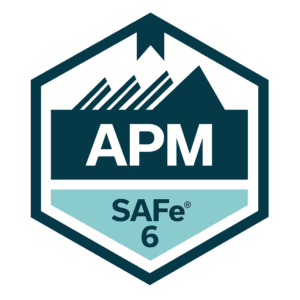Description
The discipline of software engineering has evolved with the introduction of Lean-Agile and DevOps principles and practices. New skills and approaches help organizations deliver software-centric solutions faster, more predictably, and with higher quality.
During this three-day, workshop-oriented course, attendees learn the foundational principles and practices that make up the Agile Software Engineering discipline. Attendees learn how the continuous flow of value delivery and built-in quality are enabled by modern practices including XP technical practices, Behavioral-Driven Development (BDD), and Test-Driven Development (TDD).
Attendees learn proven practices to detail, model, design, implement, verify, and validate stories in a SAFe Continuous Delivery Pipeline. They will know the practices that build quality into code (abstraction, encapsulation, intentional programming) and designs (SOLID, Design patterns). Attendees also understand how Software Engineering fits into the larger solution context and their role in collaborating on intentional architecture and DevOps.
Who Will Benefit?
This course targets the technical members of an Agile Team – developers and testers. Product Owners, Scrum Master, Managers, and others with a less technical background would also be very beneficial as they would gain an understanding of the development process so that team collaboration will become more effective.
Examples include:
- Agile Coach
- Consultant
- Software Developer
- Software Engineer
- Senior Manager
Topics Covered
- Introduction to Agile Software Engineering
- Connecting Principles, and Practices to Built-In Quality
- Accelerating Flow
- Applying Intentional Architecture
- Thinking Test-First
- Discovering Story Details
- Creating a Shared Understanding with Behavior-Driven Development (BDD)
- Communicating with Models
- Building Systems with Code Quality
- Building Systems with Design Quality
- Implementing with Quality
Prerequisites
All are welcome to attend the course, regardless of experience. However, the following prerequisites are recommended:
- Understanding of SAFe for Teams
- Background in engineering, development, managing development, or quality assurance
What you’ll learn
To perform the role of a SAFe Agile Software Engineer, you should be able to:
- Define Agile Software Engineering and the underlying values, principles, and practices
- Apply the Test-First principle to create alignment between tests and requirements
- Create a shared understanding with Behavior-Driven Development (BDD)
- Communicate with Agile modelling
- Design from context for testability
- Build applications with code and design quality
- Utilize the test infrastructure for automated testing
- Collaborate on intentional architecture and emergent design
- Apply Lean-Agile Principles to optimize the flow of value
- Create an Agile Software Engineering plan
What You Get
The class registration includes:
- Student workbook, and virtual collaboration activities
- Preparation and eligibility to take the exam
- One-year complimentary membership to the SAFe Studio
- Certified SAFe Agile Software Engineer certification upon passing the exam
- One Certification exam attempt (re-takes at an additional fee)
Attendees who pass the certification exam will receive:
- Certified SAFe® Agile Software Engineer PDF certificate
- Certified SAFe® Agile Software Engineer digital badge to promote the accomplishment online
- One-year membership to the SAFe Community Platform, which includes access to the ASE Community of Practice
- Access to Slack and Meetup groups and events that provide connections to other certified SAFe professionals
- A variety of learning resources to support certified professionals during their SAFe journey
Renewal Requirements
Certifications require renewal of SAFe® Advanced Membership one year from the certification date, the Advanced Membership also includes certifications from SAFe® Foundational Membership.
- SAFe® Advanced Membership costs $295/year + applicable tax.
- Only one renewal is required to cover all Foundational certifications.
- Provides continued access to content, course learnings, and other assets.
Professional Development Units (PDUs) and Scrum Education Units (SEUs)
- Attendees may be eligible to apply for up to 12 PDUs toward their continuing education requirements with the Project Management Institute (PMI) for PMP, PgMP, and PMI-ACP certifications
- Attendees may be eligible to apply for SEUs under Category C, toward earning or renewing their CSP through the Scrum Alliance







Reviews
There are no reviews yet.